News
COVID-19: Ghanaians reduce trips to short distances—Report

A latest report on mobility among the Ghanaian population has established a decrease in travels following the lifting of the two-week partial lockdown imposed in parts of the country to contain spread of the coronavirus (COVID-19).
Assessing movements within regions and districts in hitherto restricted areas like the Greater Accra Region and Kumasi in the Ashanti Region as well as other areas around the country, the report found that though movements had slightly increased, it remains lower than the norm.
Generally, it noted that trips were mainly restricted to short distances and routine daily trips related to activities such as commuting to work, shopping and entertainment.
Jointly conducted by the Ghana Statistical Service (GSS), Flowminder Foundation, a non-profit organisation and Vodafone Ghana, the report used data from mobile network operators to understand mobility patterns of the citizenry for decision making in managing the pandemic.
The organisations analysed the effects of mobility and social distancing interventions between February 17 and May 3, 2020, highlighting the differences in population movements before, during and after the mobility restrictions were introduced and lifted.
Government Statistician, Professor Samuel Annim, in a release copied to the Ghanaian Times yesterday, commended the public for showing discipline after the lockdown and not reverting to old ways of living.
“The observation that mobility after the partial lockdown was lifted remains at levels lower than mobility during the periods of the baseline and the initial restrictions, including sanctioning social distancing and adherence to public health hygienic protocols, endorses the effectiveness of the use of moral suasion as a complementary intervention in the fight against COVID-19.
“Residents in Ghana deserve commendation for not reverting to the ways of living prior to the imposition of the initial restrictions and are therefore urged to continue with change in behaviour in order to contain the epidemic,” he said.
Prof. Annim was confident the report will support policy making and decisions in government response to the pandemic moving forward.
Chief Executive Officer (CEO) of Vodafone Ghana, Patricia Obo-Nai, noted that mobility insights was crucial in evaluating the effectiveness of measures put in place by government in fighting COVID-19.
She, thus, hoped that more research is focused in the area to support policy making.
On her part, Data Scientist at Flowminder, Tracey Li, observed that the overall trend in reduction of movement could be helpful in case management and treatment of COVID-19 cases.
As of yesterday, Ghana had a total of 5,735 confirmed cases of COVID-19 with 1,754 recoveries and 29 deaths.
Of the number tested positive to the virus, 3,906 had come from contact tracing; 1,714 from routine surveillance and 115 from mandatory quarantine, meaning that contact tracing, was helping discover more infected persons in the country.
BY ABIGAIL ANNOH
News
GNAD courts media to promote importance of sign language
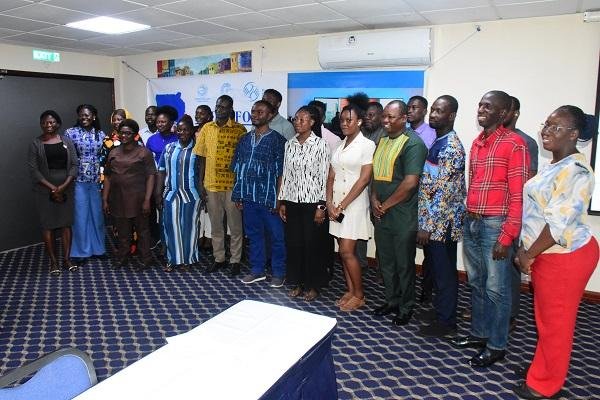
THE Executive Director of the Ghana National Association of the Deaf (GNAD), Mr Juventus Dourinaah, has called on the media to take a lead role in promoting inclusivity and accessibility for the deaf and hard-of-hearing persons in Ghana.
He made the call at a media forum last week on the theme “No Human Rights Without Sign Language Rights.” It brought together journalists, development partners, and members of the Deaf community.
The event formed part of efforts to highlight the importance of sign language as a human right and to encourage media institutions to adopt inclusive communication practices.
Mr Dourinaah emphasised that the media was one of the most powerful tools for shaping public perception, influencing policies, and setting national agendas.
“The media holds strong power to influence understanding and build inclusion.”
For deaf persons, he said, access to information through sign language, captioning, and visual communication is not a privilege but rather a human right.
He added that without accessible communication, deaf people remain excluded from national conversations, education, and opportunities that shape their lives.
He therefore urged both public and private broadcasters to integrate sign language interpretation into all news programmes, public service announcements, and major national events.
Mr Dourinaah also appealed to the National Communications Authority (NCA) and the Ministry of Communications (MoC) to make accessibility a mandatory requirement for all media houses.
At the end of the meeting, media representatives in a communique pledged to promote accessibility by including Ghanaian Sign Language interpretation and subtitles in programming.
They also pledged to ensure fair and non-discriminatory representation of deaf persons while collaborating with GNAD to train media personnel on inclusive communication.
Join our WhatsApp Channel now!
https://whatsapp.com/channel/0029VbBElzjInlqHhl1aTU27

News
29th GJA Media Awards to be held in Kumasi
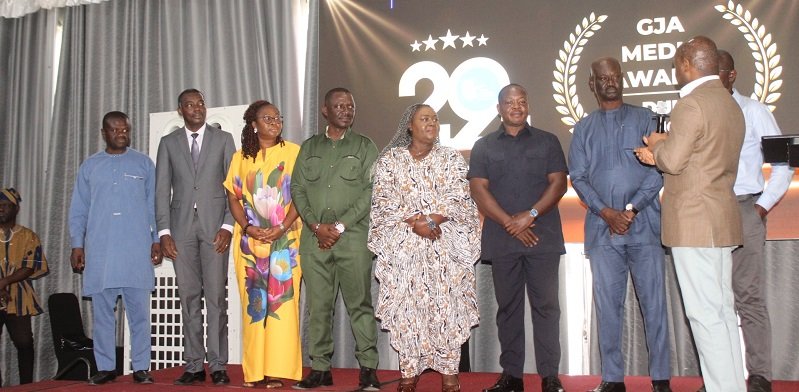
The Ghana Journalists Association (GJA) would host its flagship awards in Kumasi for the first time, with the 29th edition set for November 8 at the Manhyia Palace, under the patronage of the Asantehene, Otumfuo Osei Tutu II.
The event will celebrate excellence in journalism and recognise media professionals and institutions that have demonstrated integrity, innovation, and commitment to the highest standards of the profession.
Launching the Awards in Accra on Thursday, the GJA President, Mr Albert Kwabena Dwumfour, explained that the decision to host the awards in Kumasi was a symbolic gesture of inclusivity, reflecting the Association’s commitment to recognise contributions from all regions of the country.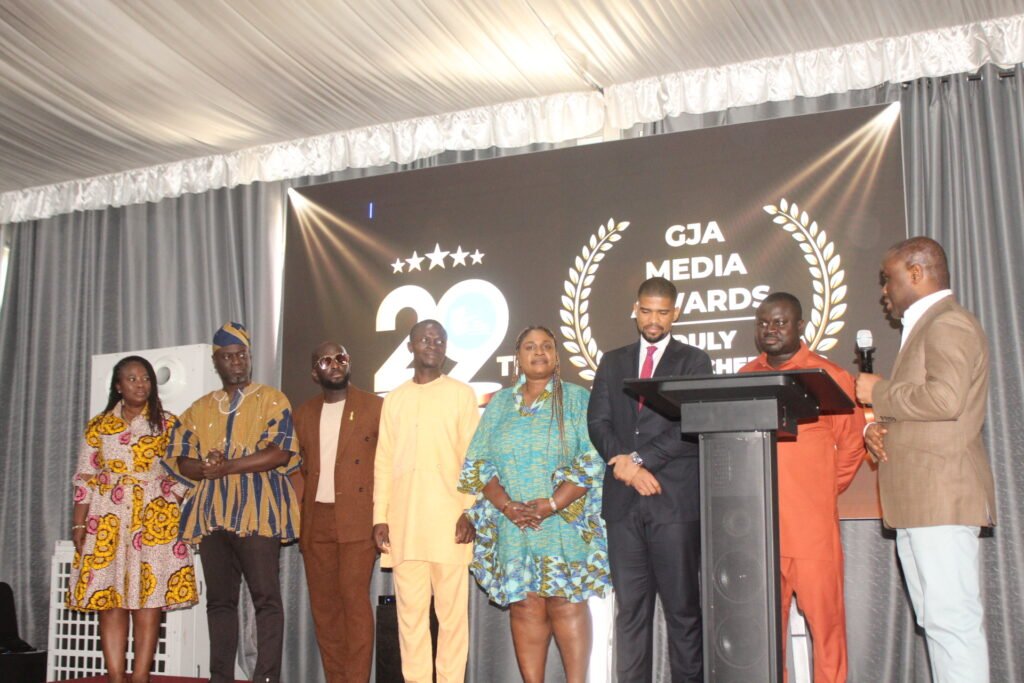
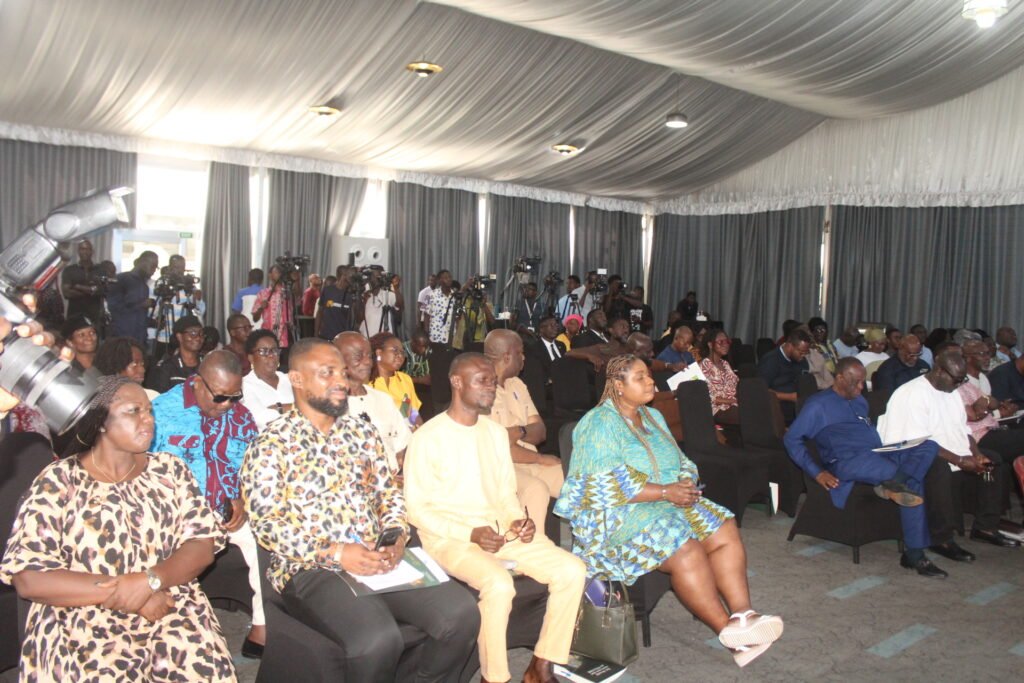
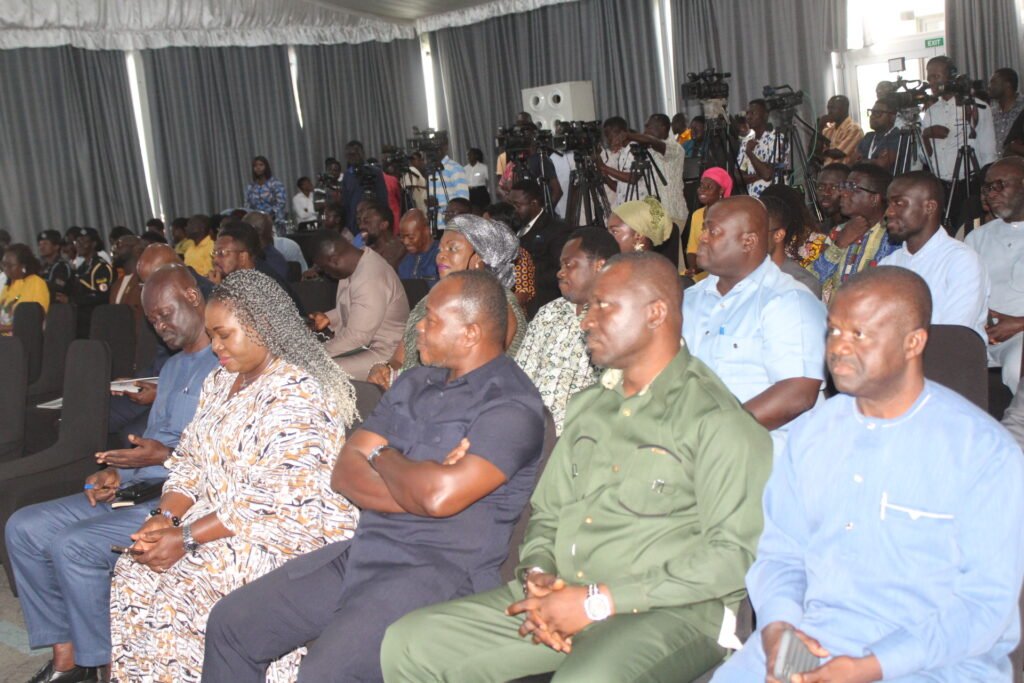
This year’s edition would be held under the theme, “Safeguarding Ghana’s Future: The Role of the Media in Promoting Peace, Security and the Fight Against Galamsey.”
At the launch, two committees — Awards and Planning Committees — were inaugurated.
The nine-member Awards Committee, chaired by Mr Gabriel Bosompem, former Commissioner of the National Media Commission and former Production Manager at TV3 (Media General), is responsible for vetting of entries.
Other members of the committee include Alhaji Salifu Abdul-Rahman, Editor of the Ghanaian Times; Mr Kingsley Obeng-Kyere, P.A.V. Ansah, Ms Nana Yaa Konadu, and Ms Theresa Owusu-Ako.
The rest are Madam Agnes Boye-Doe, Mr David Andoh, Mr Samuel Bio and Mr Jeorge Wilson Kingston.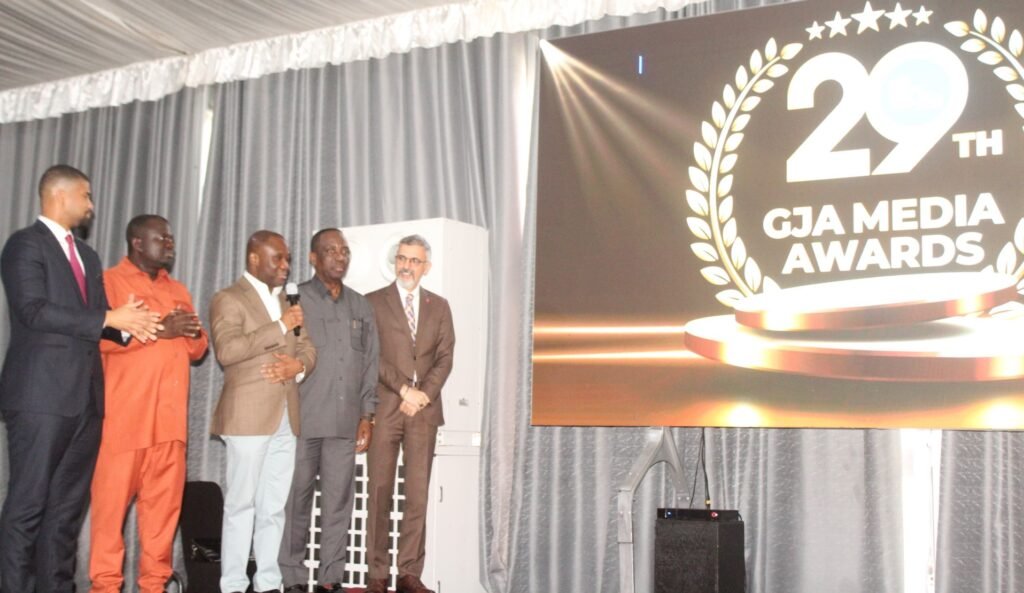
The Planning Committee is co-chaired by Mr Dwumfour and Mr Prince Oheneba Nana Kwaku Duah, and includes Mr Dominic Hlordzi, Mr Emmanuel Safo, Deputy Head of Protocol at the Manhyia Palace; and Mr Kwame Adinkra.
Others are Mr Kojo Soboh, Mr Nathaniel Attoh of Joy News; Ms Rebecca Ekpe, Vice President of the GJA; and former National Treasurer, Mrs Audrey Francesca Dekalu.
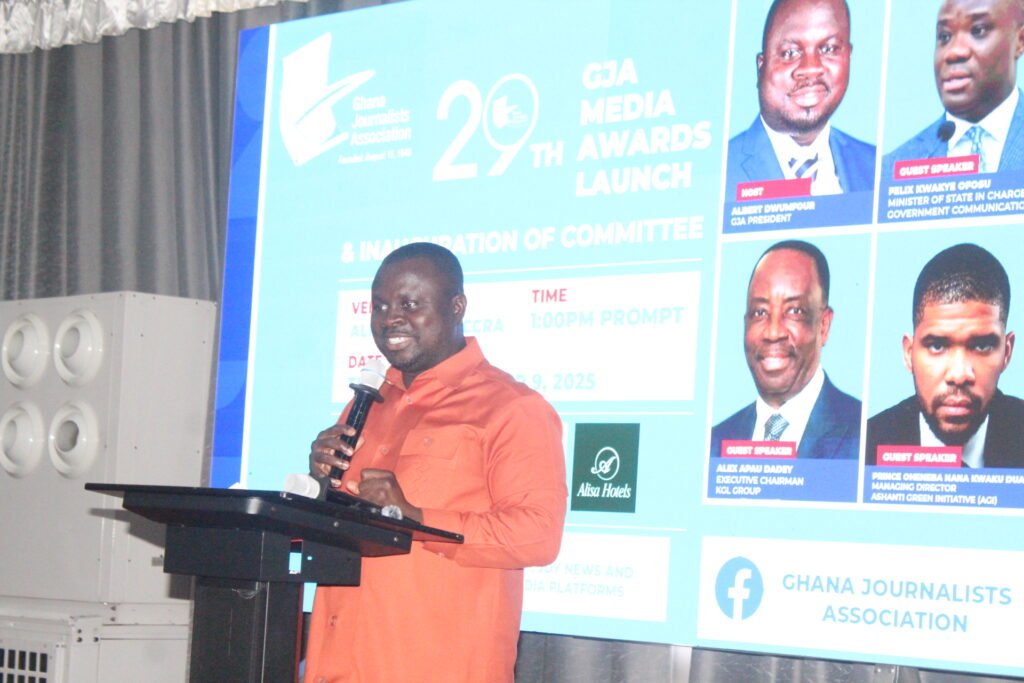
Mr Dwumfour assured that accommodation and transportation would be fully provided for more than 500 journalists to travel to Kumasi for the awards to ensure full participation.
The event will commence with a welcome reception at the Lancaster Hotel on Friday, November 7, followed by a health walk on the morning of Saturday and climax it with the awards ceremony at 4pm at the Manhyia Palace.
The Minister of State in charge of Government Communications, Mr Felix Kwakye Ofosu, in his address, commended the GJA for sustaining the awards for over nearly three decades.
He urged journalists to embrace innovation and adapt to new technologies such as Artificial Intelligence.
He reaffirmed government’s commitment to press freedom, noting that President John Dramani Mahama remains a strong advocate of free speech.
By Linda Abrefi Wadie






